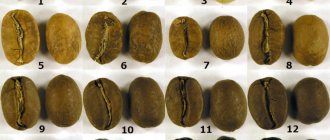182
How does drinking coffee affect your overall health? Coffee benefits and harms. There is a lot of controversy about this beloved drink. Is it good for health, can it be consumed if you have high blood pressure, can you drink coffee if you have type 2 diabetes . Scientists' research on this drink will be of interest not only to people with diabetes.
The debate about the benefits of drinking 3-4 cups of coffee a day has been going on for a long time. And even today it is not fully settled. But many studies persistently point to another positive aspect of drinking the black drink.
What is diabetes?
Diabetes is a disease that affects how your body processes glucose in the blood. Glucose, also known as blood sugar, fuels our brain and provides energy to our muscles and tissues.
If you have diabetes, it means there is too much glucose in your blood. This occurs when your body becomes insulin resistant and can no longer efficiently absorb glucose into your cells for energy. Excess blood glucose can cause serious health problems. There are a number of factors that can cause diabetes.
Diabetes can be chronic, gestational, and there is a variant of borderline diabetes, the so-called prediabetes. Chronic diabetes comes in two types—type 1 and type 2. Gestational diabetes occurs during pregnancy but tends to go away after birth. Prediabetes, sometimes called borderline diabetes, means your blood glucose levels are higher than normal but not so high that you are diagnosed with diabetes.
Signs and symptoms of diabetes include:
- increased thirst,
- unexplained weight loss,
- fatigue,
- irritability
If you think you have these symptoms, you should contact your doctor.
How to drink coffee if you have diabetes
To minimize risks, you need to drink coffee if you have diabetes mellitus correctly, following the recommendations:
- Drink the drink regularly. If you drink it rarely, the body will not adapt to it, which will lead to sudden surges in blood pressure. Systematic use reduces tissue swelling and increases sensitivity to insulin.
- Avoid supplements. An alternative to sugar and cream is sweeteners.
- Drink in small portions, no more than 2 times a day.
- Use natural grains and grind them before cooking.
- Do not drink from the machines.
- It is better to choose caffeine-free varieties, this will reduce the load on the heart and blood vessels.
- Monitor glucose levels.
- It is forbidden to drink on an empty stomach, this will increase the level of glucose in the blood and cause disturbances in the functioning of the digestive system.
Natural coffe
It is prepared from roasted beans in a Turkish coffee pot or coffee maker. The grains are ground before cooking. The drink is low-calorie, does not cause weight gain, and invigorates well. The composition contains a number of useful components. For diabetes mellitus, drinking this drink is allowed no more than 1-2 cups per day, after which it is recommended to monitor the body’s reaction.
Green coffee
Green coffee will be beneficial for type 1 and type 2 diabetes. Scientists are confident that this variety is acceptable and even beneficial for diabetics to drink. The main qualities of the drink include increased metabolic processes, decreased absorption of lipids and carbohydrates, and a beneficial effect on the functioning of the heart and blood vessels.
American scientists have concluded that regular consumption of green coffee for diabetes can reduce blood sugar by 10%. This drink is especially useful for patients with type 2 diabetes.
Other studies have shown that systematic consumption of green tonic drinks in acceptable quantities reduces the risk of developing diabetes. Despite the benefits and safety, it is not recommended to consume more than 2 cups per day, and if you have heart disease, it is better to avoid it altogether.
Do you drink coffee?
Yes
No
Soluble
During the production of any instant coffee, the beans go through several stages of purification, which leads to the loss of almost all useful components, while the amount of chlorogenic acid remains unchanged. Many doctors recommend avoiding this drink, especially if you have a history of heart and vascular disease.
Decaffeinated coffee for diabetes
Removing caffeine from beans is called decaffeination. It is believed that in case of diabetes, such a drink cannot cause harm and, on the contrary, it enhances glucose metabolism, has a slight diuretic effect, and slows down the excretion of calcium, which eliminates surges in blood pressure and the development of arrhythmia.
Coffee and possible diabetes prevention
Harvard researchers conducted an experiment that followed more than 100,000 people over 20 years. They focused on a four-year period and their findings were later published in this 2014 study.
It found that people who increased their coffee consumption by more than one cup per day had an 11 percent lower risk of developing type 2 diabetes.
However, people who reduced their coffee consumption by one cup per day increased their risk of developing diabetes by 17 percent. There was no difference in who drank tea.
It is not clear why coffee has such an effect on the development of diabetes. Think caffeine? In fact, caffeine increases glucose and insulin levels in the short term.
In one small study of men, decaffeinated coffee even showed a dramatic increase in blood sugar levels. Currently, there is limited research and more research needs to be done on the effects of caffeine on diabetes.
Scientists reveal how coffee actually affects the heart and brain
Caffeine has a stimulating effect on the nervous system. This occurs by blocking special adenosine receptors in the brain
Photo: Nikolay OBEREMCHENKO
According to many researchers, the word “coffee” comes from the name of the southern Ethiopian province of Kaffa, where the aromatic drink was known back in 875 AD. Coffee was the favorite drink of the Bedouins, who drank it during long treks across the hot sands of the Arabian desert. This drink gave strength and relieved fatigue. However, the study of coffee continues to this day, with researchers arguing about its benefits and possible harm to our health. What do the latest data say?
The results of two large studies published in the international scientific journal Annals of Internal Medicine in 2017 showed that drinking coffee reduces the risk of overall mortality. For the first time, experts have studied the impact of coffee and its preparation methods on the health and mortality of people around the world. The beneficial effects of this drink on the human body have been noted in various European countries, in different racial and ethnic groups. The findings once again confirmed the results of earlier studies.
"COFFEE PARADOX"
Caffeine is known to increase blood pressure. Therefore, it may seem counterintuitive that this substance reduces the risk of developing cardiovascular diseases such as coronary heart disease, heart failure and atrial fibrillation. The paradox may be explained by the fact that the beneficial properties of coffee outweigh and neutralize, that is, smooth out the negative effects, experts say. As it turned out, coffee beans prevent the oxidation of “bad” cholesterol (low-density lipoproteins) and reduce the manifestation of inflammation.
The positive effect of coffee also extends to the blood vessels of the brain. An analysis of a large number of studies (meta-analysis) showed that drinking up to 6 cups of coffee per day reduces the risk of stroke by 17%. A Swedish study involving only women showed a reduction in this risk by 22 - 25%.
Another pooled analysis of studies involving patients with cerebrovascular disease confirmed that 1 to 3 cups of coffee per day protected against the development of ischemic stroke in both healthy and sick people.
Finally, a Japanese study demonstrated that drinking coffee for an average of 13 years reduced the risk of ischemic stroke by 20%.
WILL IT HELP IN THE FIGHT AGAINST DIABETES AND CANCER?
As it turns out, coffee can fight high levels of glucose and cholesterol in the blood, as well as obesity. Numerous studies demonstrate such invaluable properties of the drink. For example, coffee has been shown to improve glucose metabolism, increase insulin secretion, and significantly reduce the risk of diabetes. Experts have suggested that this is due to the anti-inflammatory as well as antioxidant properties of chlorogenic acid (an ester of caffeic acid), which interferes with the absorption of glucose.
At the same time, a number of studies discovered the anticarcinogenic properties of coffee. The drink was found to reduce the risk of several types of cancer, including endometrial cancer (more than 4 cups per day), prostate cancer (6 cups per day), neck and head cancer (4 cups per day), basal cell carcinoma (more than 3 cups per day) and melanoma. These properties of coffee are partly explained by its antioxidant and antimutagenic effects.
WILL IT HARM THE NERVOUS SYSTEM?
On the Internet you can find frightening warnings that coffee destroys the nervous system. Is it so?
Caffeine has a stimulating effect on the nervous system. This occurs by blocking special adenosine receptors in the brain (their stimulation, on the contrary, has a calming effect). Therefore, coffee is contraindicated for people with anxiety disorders, sleep disorders, epilepsy and seizures.
However, a number of studies suggest that drinking coffee helps improve cognitive functions: memory, concentration. For example, in patients with early stage dementia who drank 3 to 5 cups of coffee per day, no deterioration in cognitive function was observed. Another study published in the journal Nature Neuroscience in 2014 found a relationship between caffeine intake and the ability to remember events. And the protective effect of coffee on cells of the nervous system in Parkinson’s disease has long been unquestioned.
Among other things, coffee protects us from depression. For example, in women who drank 2 - 3 cups of coffee per day, the risk of its occurrence, according to the study, was reduced by 15%. And it fell by 20% in those who drank more than 4 cups a day.
WHO TAKES THE RISK
As always, there is another side to the coin. Let us emphasize once again: coffee increases blood pressure, promotes the development of anxiety, insomnia, tremors (trembling hands, legs) and can even increase the risk of glaucoma (a disease with a dangerous violation of intraocular pressure).
Scientists have differing opinions about whether caffeine overdose is possible. Dr. John Mandrola, clinical electrophysiologist (Baptist Medical Associates, Louisville, KY, USA) recalls a case in which drinking 6 cups of coffee was fatal in a 16-year-old boy. This dose was enough to cause nausea, vomiting and heart palpitations. At the same time, the amount of drink consumed by the teenager was much lower than the lethal dose: it is considered equal to 10 g of caffeine, or 100 cups of coffee per day.
In conclusion, we note: the evidence provided in the studies described is still associative in nature. That is, scientists have recorded certain, more often positive, effects in people who drank coffee, but it is theoretically possible that there is not a direct cause-and-effect relationship, but coincidences (researchers often give an example: the crowing of a rooster coincides with the sunrise, but this does not mean that it was shining rises because the rooster crows).
“Culinary Encyclopedia from A to Z” will reveal to you the secrets of preparing dishes from the best chefs and pastry chefs. Look for it on shop.kp.ru and in KP brand stores.
"Culinary encyclopedia from A to Z"
18+ JSC Publishing House Komsomolskaya Pravda, Moscow OGRN 1027739295781.
Caffeine, blood glucose and insulin (before and after meals)
One 2004 study found that taking a caffeine capsule before meals increased postmeal blood glucose levels in people with type 2 diabetes. It also showed an increase in insulin resistance.
According to a recent 2021 study, genes may play a role in caffeine metabolism and its effect on blood sugar levels. In this study, people who metabolized caffeine more slowly showed higher blood sugar levels than those who genetically metabolized caffeine faster.
Drinking caffeine over a long period of time can also change its effect on glucose and insulin sensitivity. Tolerance to long-term consumption may be responsible for the protective effect.
A more recent study in 2021 found that the long-term effects of caffeine may be associated with a reduced risk of prediabetes and diabetes.
A fine line between benefit and harm
Scientists argue about the benefits and harms of coffee for diabetes. The point is the caffeine contained in the drink. Caffeine in large quantities reduces the body's sensitivity to insulin . This increases blood sugar levels. But if the level of caffeine in coffee is low, then it, on the contrary, increases glucose metabolism.

High-quality coffee contains linoleic acid and phenolic compounds, and they increase the body's sensitivity to insulin.
The amount of caffeine in the finished drink depends on the level of roasting of the beans and its quality. Arabica beans are considered the highest quality. The plant is whimsical and lives high in the mountains, where there is high humidity. The product arrives to us on ships in wooden barrels or canvas bags.
Manufacturers roast the beans and offer them under various brands. The price of high-quality Arabica coffee starts from 500 rubles/150 g. Expensive coffee is not always affordable for domestic buyers.
To reduce costs, most manufacturers mix Arabica beans with cheap Robusta. The quality of the grains is low, the taste is bitter with an unpleasant aftertaste. But the price on average is from 50 rubles/100 g. It is better for those suffering from diabetes to refrain from drinking a cup of coffee made from robusta beans.

The second thing you should pay attention to when choosing beans is the degree of roasting.
Manufacturers offer the following types of product processing:
- English. Weak, the grains are light brown in color. The taste of the drink is delicate, soft with a slight sourness.
- American. Medium degree of roasting. Sweet notes are added to the sour taste of the drink.
- Viennese. Deep roast. The coffee is dark brown in color. A drink with a rich taste and bitterness.
- Italian. Extra strong roast. The grains are the color of dark chocolate. The taste of the drink is rich with notes of chocolate.
The more deeply the coffee is roasted, the more caffeine it contains. For a diabetic patient, English or American roast level is suitable. Green coffee is good for you. Unroasted grains remove toxins from the body and act as a natural anti-inflammatory agent.
Fasting blood glucose and insulin
Another 2004 study looked at the effects of "medium level" on people without diabetes who either drank 1 liter of regular black coffee per day or abstained from drinking it.
At the end of the four-week study, those who consumed more coffee had more insulin in their blood.
If you have type 2 diabetes, your body cannot effectively use insulin to control blood sugar levels. The “tolerance” effect observed with long-term coffee consumption takes much longer to develop than four weeks.
Other beneficial properties of coffee
There are other health benefits of drinking coffee that are not related to diabetes prevention.
New studies that controlled for risk factors have shown other benefits of coffee. These include potential protection against:
- Parkinson's disease;
- liver diseases, including liver cancer;
- gout;
- Alzheimer's disease;
- gallstones.
These new studies also show that coffee reduces the risk of depression and improves the ability to focus and think clearly.
Preventing diabetes
Coffee may be more popular than ever, but drinking it regularly isn't the best way to manage diabetes - even if (believe it or not) there is growing evidence that it can help prevent diabetes.
Creamy, sugary drinks found in coffee shop chains often contain unhealthy carbohydrates. They are also very high in calories.
The effects of sugar and fat in many coffee and espresso drinks may outweigh the benefits of any protective effects of coffee.
The same can be said for sweetened and even artificially sweetened coffee and other drinks. Adding sweetener increases your risk of developing type 2 diabetes. Consuming too many added sugars is directly linked to diabetes and obesity.
Regular consumption of coffee drinks that are high in saturated fat or sugar may increase insulin resistance. This may ultimately contribute to type 2 diabetes.
Most major coffee chains offer drink options that are lower in carbs and fat. Skinny coffee drinks allow you to wake up in the morning or afternoon without a sugar rush.
Risks of drinking coffee
Even for healthy people, the caffeine in coffee can have some side effects. Common side effects of caffeine include:
- headache;
- restlessness;
- anxiety.
As with everything else, moderation is the key to coffee consumption. However, even with moderate consumption, coffee has risks that you should discuss with your doctor.
These risks include:
- increased cholesterol levels in unfiltered or espresso coffee;
- increased risk of heartburn;
- increased blood glucose levels after meals.
Important Notes:
Teens should consume at least 100 milligrams (mg) of caffeine every day. This includes all caffeinated drinks, not just coffee. Young children should avoid caffeinated drinks. Adding too much sweetener or cream may increase your risk of diabetes and excess weight.
Can you drink coffee if you have diabetes?
It can be consumed if you have diabetes, but it is important to follow some rules, only then it will not harm your health. It is not recommended to drink the drink with sugar, cream or milk, and it should also be avoided in the evening, otherwise it will lead to sleep disturbances. Unfiltered coffee is considered harmful to health, as it increases the amount of cholesterol in the blood, increases blood pressure, increases heart rate, and increases psychomotor agitation. What effect a tonic drink will have on the body depends on the variety, method of preparation and the patient’s condition.
Coffee for type 1 diabetes
Doctors are confident that the drink for type 1 diabetes increases sugar levels by 10%, but when consuming high-quality varieties, there is a decrease in nocturnal episodes of hypoglycemia.
Whether or not to drink coffee with such a disease depends on several factors: the general condition of the patient, concomitant chronic diseases and complications. For example, insulin-dependent patients with hypertension, angina pectoris and arrhythmia are prohibited from drinking coffee. Doctors believe that it is not the disease itself that is a contraindication, but its consequences, so everything here is individual.
Can I drink if I have type 2 diabetes?
It is permissible to drink the drink without adding cream and sugar, replacing them with sweeteners. It is important to completely avoid cream, as it increases cholesterol levels in the blood, which is bad for the functioning of the heart and blood vessels. Doctors have different opinions about the drink, but if you do not abuse it and follow the rules of administration, it is completely safe for consumption.
Doctors recommend mixing it with chicory, which can reduce the symptoms of diabetes, improve metabolic processes, and prevent excess weight gain.
How many cups of coffee can you drink per day if you have type 2 diabetes?
It depends on the person, as there is no universal recommendation. However, in general, drinking unsweetened coffee in moderation is good for people with type 2 diabetes. The typical recommendation is not to consume more than 400 milligrams of caffeine per day. This is about 4 cups of coffee.
If it is affecting your mood, sleep, blood sugar and energy, you may be advised to limit your intake. The most important thing when choosing coffee for people with diabetes or those managing their weight is to pay attention to the carbohydrate content of the milk and added sweeteners. It is recommended to reduce or eliminate artificial sweeteners as they destroy gut bacteria, cause appetite and overeating, and negatively affect weight and blood sugar levels.
Traditional lattes, cappuccinos and flat whites contain milk and may have added sweeteners. Caffeinated drinks that do not contain carbohydrates include Americano, espresso, filter coffee and all types of alternative brewed black coffee.
Instead of using any additives in your coffee, choose honey as a sweetener and add unsweetened milk instead of buttercream. This will reduce your saturated fat and carbohydrate intake while maintaining flavor. Stick to 1 tablespoon of honey or less, which contains 15 grams of carbohydrates. Traditional coffee drinks can contain up to 75 grams of carbohydrates from added sugar, so this significantly reduces your sugar intake.











